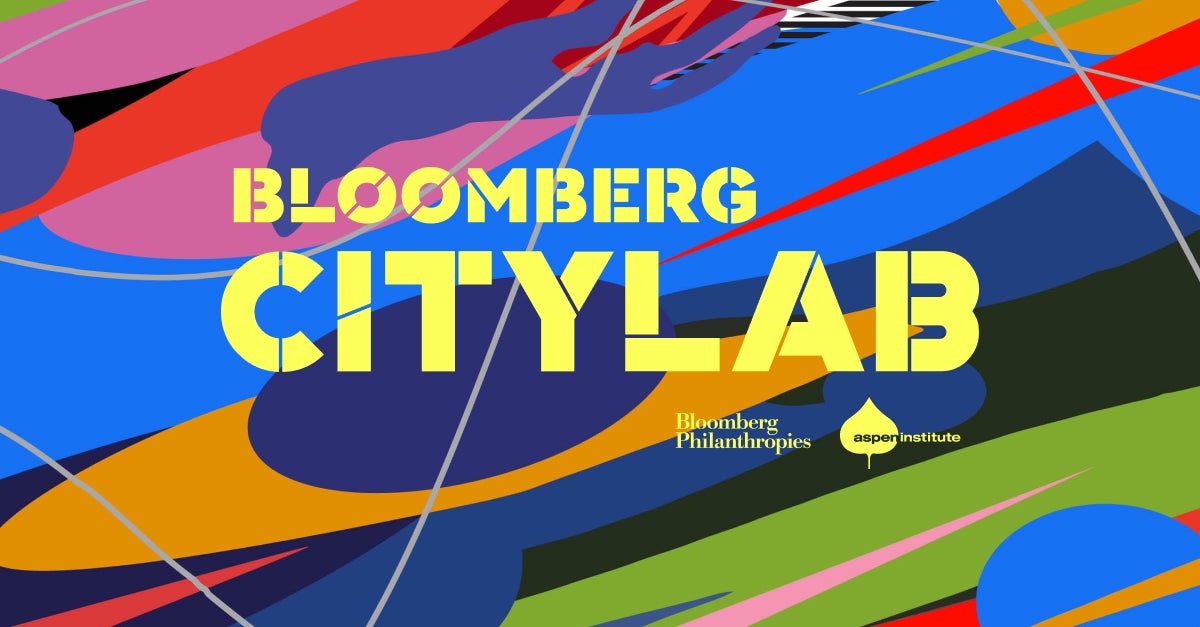Lila Guirguis leads the Office of the Young Child for the City of Pasadena, creating a comprehensive approach to early childhood policies, practices and services in Pasadena. Previously, she was the executive director of Magnolia Community Initiative, a collaborative effort of over 70 non-profit organizations, faith-based and community groups, and public agencies, dedicated to improving long term outcomes for families and children in a five-square-mile catchment area of South Los Angeles.
This interview is part of the Aspen Institute Center for Urban Innovation’s series of conversations with inclusive innovation practitioners.
Jennifer Bradley: What values guide your work?

Lila Guirguis, Lead, Office of the Young Child, City of Pasadena
Lila Guirguis: The values that guide my work have been pretty steadfast for the last 23 years or so. Working with transparency, working with community rather than for them, giving community a voice, and being of value to the places that we, as organizations, reside. I think those are important. The transparency piece really makes people step back, because it slows processes down sometimes, and is therefore not always easy to do.
JB: Can you tell us a story about how some of your values might have been in conflict, and how you resolved that?
LG: In my experience some of my values have come into conflict when grant opportunities arise that may not be the right fit or in alignment with the work, but you need financial resources to support or advance your efforts. So, do you go for the grant and adjust what you are doing or do you miss the opportunity? For example, at one point, my organization went for a multi-million dollar grant, that we thought could be a great fit for the advancement of our work. We proposed adjustments to where we were originally headed, spent months on the proposal, vetting it through our partners and through a community process. In the end, it went to a partner organization we did not know we were even competing against. Although we were qualified to do the work, there were political forces at work that were beyond our control. It was devastating in many ways. It caused us to pause, readjust, and reevaluate our organizational values and think about how we were going to go forward on our own terms. We ultimately decided to have the work develop organically, take our time and move in the direction where there was synergy and energy of our partners, and look for financial resources that were in direct alignment. We understood that our work was about achieving community level outcomes, so change would not happen overnight, it was long-term and generational.
JB: What do you think is the purpose of values at the organizational level?
LG: I think at the very basic level, having values helps you stay true to your vision and mission. A lot of organizations put a lot of time into developing their vision, their mission, and how they’re going to accomplish it. Values mean that there’s a continual touch point to the why we’re doing the work. I think a lot of organizations understand what they’re doing, and how they’re going about doing it, but I don’t think we spend a lot of time on the why, and I think that the values provide that for an organization. Understanding, being clear, as to what you stand for, and why you stand for it.
JB: Was there a time that your organizational values guided you through a difficult decision?
LG: Like I said at the beginning, I really value transparency. And, one of the things that I was working on this past year was launching the City of Pasadena as an early learning city with a city-wide celebratory event that took place in September. I worked across three city departments, in helping create this launch. There were a lot of things that proved challenging, given this was my first year with the city. There are basic processes and protocols that I needed to learn and adjust to, especially when it came to who was responsible for a certain task or requirement.
I value transparency, and I value good communication, and really listening to community around what it is that we do. Working for a public agency it quickly became clear you cannot be all things to all people and that the process and protocols that at times look like barriers are there for a reason. Working across different departments was an exercise in patience and understanding, slowing down and working through the processes in place. I was also able to use a tremendous voluntary network to help support the community and communicate the message about our launch and long term efforts.
JB: How do you hold yourself accountable to your values, especially in situations of difficulty?
LG: I think one of the ways that I’ve tried to hold myself accountable is to make sure that I’m not working in isolation. As a staff of one, creating an office that has not existed before, it’s been extremely helpful to have what we’ve been calling a kitchen cabinet – a small group of individuals that I’m able to touch base with and talk to in a very honest and open way. In any new job you must build trusted relationships. This has happened with this kitchen cabinet – there’s mutual trust with this group of individuals where I can pick up the phone, and I can talk to them about any challenges and ask for guidance or advice. It’s important to an have outside perspective, because we can be very hard on ourselves, and we can judge ourselves more harshly than what might be the reality.
Having a group of individuals that I trust and that I talk to and can work through challenging situations or questions that I have, has been really tremendous. Being able to receive honest and constructive feedback has been something that I hold very valuable, and that can hold me accountable to my own values.
JB: Is there anything that you want to say about values that the questions so far didn’t elicit?
LG: Folks might think that values change over time, and I would argue that they don’t. They may transform, or more values are added, but I think at the core, whether it’s personal, or even within an organization, values are always something that you should hold steady. With every job change you adopt a different organizational vision/mission but your personal and professional values should hold steady no matter where your career takes you.
So, backing into that, you should have a solid understanding of your personal and professional values. Create time for reflection. The only way you’re going to understand what you value and what you stand for is to really dig deep, is to make the time for reflection. This takes time, it takes thought, and it takes practice.
This interview has been edited and condensed for clarity.
This blog series is supported by the Citi Foundation, a vital early supporter of the Center for Urban Innovation at the Aspen Institute. With the Citi Foundation’s help, the Center convened leading-edge practitioners to develop a shared set of principles to guide a cross-sector approach to inclusive innovation in low- and middle-income neighborhoods, and to determine how the Aspen Institute could support this practice.

